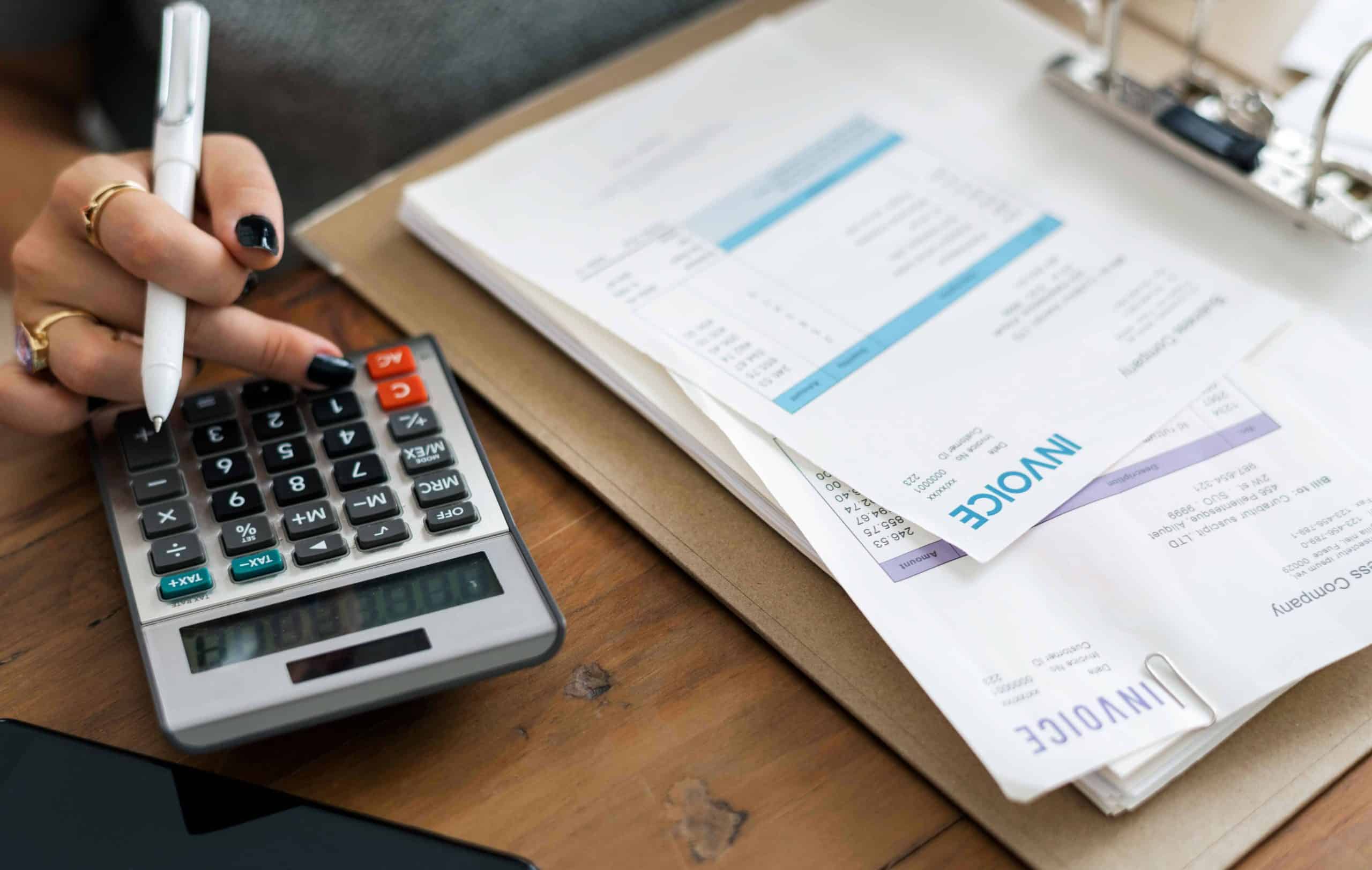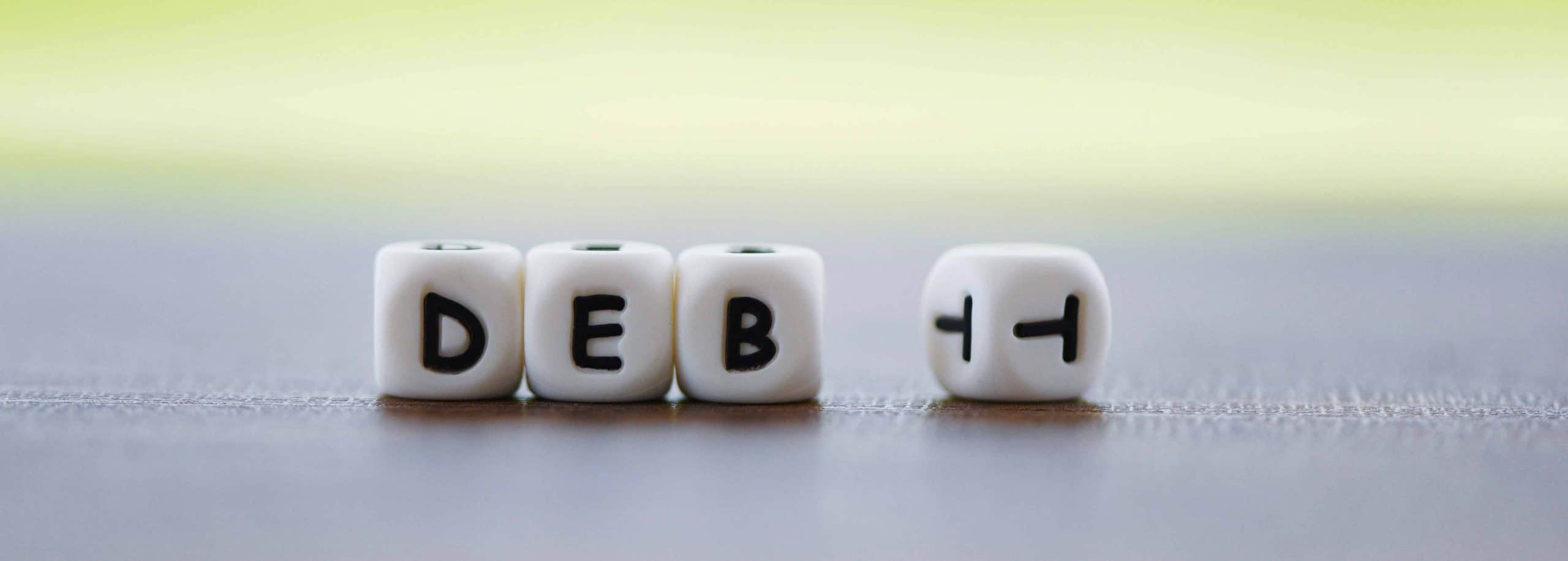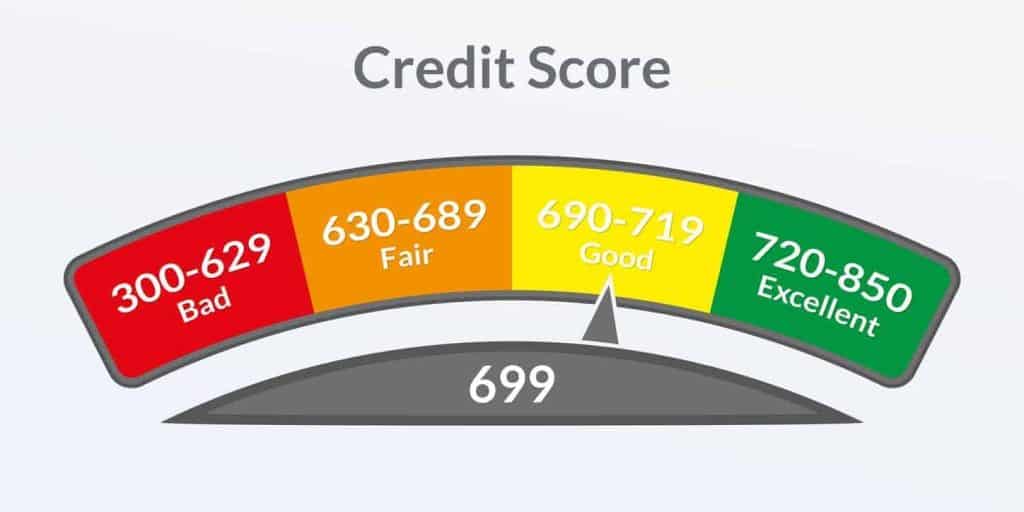Best Way to Increase Your FICO Fast
Whether you want to get a mortgage or simply need a lower interest rate on a credit card, your credit score is an important part of your financial health. This three-digit number shows companies whether you can handle debt responsibly. If your FICO score is too low, you will be charged higher interest rates. An extremely low score can even keep you from getting any credit cards or loans at all. Thankfully, you can quickly figure out answers to questions like, “How do I raise my FICO?” and rebuild your credit record.
How Does a Credit Score Work?
Your credit score is a three-digit number that shows lenders how good you are at managing debt. While it was developed for lenders, it is also used by insurers, landlords, cell phone companies and utility providers. If you have a low credit score, you may be unable to rent an apartment or get a cell phone without a co-signer.
Because of this, it is extremely important to have a higher credit score. Your FICO score is a number between 300 and 850. If your score is closer to 850, it will be easier to get a loan because lenders believe you are less risky. When your score is closer to 300, it will be much harder to get a loan or a good interest rate. There are a number of online sites that allow you to check your FICO score for free. In addition, some credit card companies will even give you a free update about your score each month.
While a lender will also look at your income level, your FICO score plays a key role in whether your application is approved. Each score is ranked from poor to exceptional.
- Exceptional: 800-850
- Very good: 740-799
- Good: 670-739
- Fair: 580-669
- Poor: 300-579
These FICO scores are made by the Fair Isaac Corporation to help lenders evaluate risk. While a Fortune 500 company releases financial statements so that investors can evaluate risk, you and I do not have the same ability. Instead, we get a simple score that allows lenders to see our risk level with a single glance.
When you have a score higher than 800, you will have the best access to loans and low interest rates. People who have a score higher than 670 will still have fairly good access. If your score is between 580 and 669, you have fair credit. This means that a lender might still give you a loan, but you will end up paying more for it through higher interest rates.
When your loan is below a 579, you may not be able to get a loan at all. Even if a lender is willing to give you a loan, they may require a large deposit or added fees. Unfortunately, an estimated 11.7 per cent of people had a score lower than 579 in 2016.
There are a few factors that can cause your score to go up or down. These factors include the number and types of credit accounts. Your total amount of debt, payment history, debt-to-income ratio and public records can change your FICO credit score. In addition, your credit utilization rate and the length of your credit history can cause your score to decrease or increase.
Pay Your Bills on Time

Raising your credit score is not particularly exciting. It is not about what you do once that counts. The most important things you can do to get a high credit score are what you do each day. When it comes down to it, the day-to-day, mundane things you do are more important than any major changes.
Paying your bills on time is one of the best things you can do to have a good credit score. These day-to-day, consistent activities show that you are a reliable person who can be trusted with credit cards and loans. When you pay your bills on time, you show a lender that you can be trusted to pay back a loan. In essence, your past performance predicts your future performance.
All of your bill payments are important. While you should definitely pay credit cards and student loans on time, you also need to make sure that your utilities, rent and internet bills are all paid when they are due. These bills can end up impacting your credit score negatively if you forget to pay them.
If you struggle to pay these bills on time, try setting up a calendar reminder or an automatic payment option. Late and missed payments will appear on your credit report for seven years. Thankfully, these missed payments have less and less of an impact as they grow older. If you do get behind on payments, bring your accounts current as quickly as you can.
Get Credit for Paying Your Phone Bill and Utilities
It is important to pay all of your bills on time because it shows a potential landlord, lender or insurer that you are capable of repaying your debts. While most people focus on repaying loans, your utilities and phone bills can also help you improve your credit.
One of the credit reporting bureaus offers a new option for using your utility payments to boost your credit score. The Experian Boost program basically lets you connect your telecom and utility accounts to your credit score if you opt in to it. You essentially link up your bank account and verify your data. Then, your FICO score gets automatically updated with your new payments.
Sometimes, people are unable to develop a credit record because they cannot qualify for a credit card. If you are unable to get credit to boost your score, this is a viable alternative. Almost everyone has a utility or telecom account, so you can use the payments you already have to start increasing your credit score.
Pay Off Your Debt

Making your payments on time is important for increasing your credit score, but it is not the only factor that matters. Your lender wants to make sure you can afford another monthly payment before they give you a loan. Because of that, they consider your debt-to-income ratio.
The debt-to-income ratio compares your monthly debt payments to your monthly income. For example, someone who pays $600 for a credit card payment and $1,200 for their mortgage has $1,800 in debts each month. If they earn $7,200 a month, then their debt-to-income ratio is 25 percent.
In general, lenders will not provide you with any credit or loans if your debt-to-income ratio is higher than 43 percent. This is because lenders have discovered that debt becomes unmanageable if it crosses this threshold. If your debt-to-income ratio is extremely high, it can impact your credit score indirectly. In addition, it makes it more likely that you may run into financial trouble or end up filing for bankruptcy.
Your debt-to-income ratio does not directly impact your credit score because your credit score does not include your income. While debt-to-income ratios do not directly change your score, they do have an indirect impact because your score includes your credit utilization ratio. This ratio is made by adding up all of your credit card balances at any moment in time. Then, this figure is divided by your entire credit limit.
For instance, imagine that I have $1,000 on my credit card. My entire credit limit is $10,000. This means that my utilization ratio is at 10 percent. If you want to figure out your average credit utilization ratio, add up the statement balances for all of your credit cards for the last 12 months. Then, divide this figure by 12. This shows how much credit you actually used during an average month.
When you go to a lender for a loan, they want to see a ratio of 30 percent of less. If your credit utilization ratio is too high, it shows the lender that you are getting close to maxing out your credit limit. Often, someone who manages credit well has a lower utilization ratio. If you pay off your debts, it can increase your credit score by improving this ratio.
Choose Automatic Payments
When you have multiple bills, it is easy to lose track of whether one of them has been paid or not. Unfortunately, a late payment can instantly harm your credit score. To prevent this from happening, make sure to pay all of your bills on time.
One of the easiest ways to make sure your bills are paid is by setting up automatic payments. Once you have automatic payments, the bill payment is instantly withdrawn from your bank account whenever it is due. In addition to being convenient, this technique can really make a difference with your credit score. Your payment history accounts for 35 percent of your FICO score. By making sure you pay your bills on time, you can immediately start making a difference on your credit report.
Keep Low Balances on Your Credit Card
Ideally, you need to keep your credit card balance as low as possible. Credit card debt is also extremely high in interest rates, so it is one of the best things for you to pay off right away. By reducing your credit card debt, you can improve your credit utilization rate and your credit score at the same time.
Limit New Accounts
When you apply for a new account, the lender pulls your credit report. Each hard inquiry can impact your score. If you have multiple inquiries, it can cause a significant drop in your credit score.
Once a lender does a hard inquiry on your credit score, it causes your credit score to decline. Then, this inquiry can stay on your report for two years. If you apply for multiple credit cards, loans and store cards in a short amount of time, it can have a significant, lasting impact on your score.
This is an important concept to remember because some people apply for multiple accounts to improve their credit mix or decrease their credit utilization rate. Having another credit card can potentially achieve these two goals, but this technique only works if you are approved for the credit card. In addition to potentially increasing the chances you will run up a huge credit debt, this technique will probably not improve your credit mix significantly enough to be worth it. Instead of helping you out, having another account can tempt you to overspend.
Avoid Closing Accounts
While you want to limit new accounts to avoid multiple inquiries, your current accounts have already had their hard inquiry. If you close these accounts, it will not make a difference for the hard inquiries on your credit report. Closed accounts can decrease your credit limit, which can end up harming your credit utilization rate. Unless the account charges an annual fee, you should try to keep it open.
We can quickly see the impact this could have on your credit utilization rate by looking at a hypothetical situation. We will assume I still have $1,000 in credit debt, but I only have a balance on one of my two credit cards. Each card has a $5,000 limit. This means that my credit utilization rate is currently at 10 percent. If I closes one of my credit cards, my limit will drop to just $5,000. My credit debt is still at $1,000, which means my credit utilization rate is now at 20 percent. While my debt level is actually the same, my credit utilization rate jumped from 10 percent to 20 percent overnight.
If your credit card has annual fees, it may make sense to close it and save on those annual costs. Otherwise, you should consider keeping your credit accounts open. By doing this, you can have a lower utilization rate and a higher credit score.
Fix Inaccuracies on Your Report
If you notice a mistake on your credit report, you should fix the inaccuracies right away. Otherwise, these inaccuracies could end up harming your credit score.
Each credit reporting bureau has different information, so you need to check your report at each bureau. Equifax, TransUnion and Experian are required to give you a free report each year. You should verify all of the accounts on you report and carefully look at any negative items. If there is a mistake, you should dispute the error and get it corrected as soon as possible.
Pay at Strategic Times
Sometimes, you can enjoy a credit score increase without having to change anything significant at all. All you have to do is change when you pay your credit card balance each month. By paying before the statement closing date, you could immediately enjoy a better credit score.
By learning more about how a credit score is calculated, you can find simple ways to change your score. Each month, your credit company sends you a statement with your minimum payment and overall balance. Some people pay their entire balance on a monthly basis to avoid interest costs. While this technique is excellent for staying out of debt, it could actually be harming your credit.
Instead of waiting for your statement to arrive, pay as much as possible before the closing date. Once the closing date arrives, the balance is used to calculate your credit utilization rate. If you make the same payment a day earlier, the credit card company will report a lower balance to the credit bureaus.
The best part about this technique is that you do not have to change your spending habits at all. You only have to check your balance and pay earlier in the billing cycle. As long as you pay before the statement closing date arrives, the reported balance will be lower.
Avoid Excessive Applications
One of the factors that affects your credit score is your number of credit inquiries. If there are multiple hard inquiries on your credit report, it drops your score. These inquiries can stay on your report for two years. Thankfully, it will stop actually affecting your score after just one year.
If you are shopping for a student loan, mortgage or auto loan, you have some leeway for finding the right loan. When multiple inquiries occur in a short amount of time, they are considered the same inquiry because the credit bureaus know that people need to shop around for the best lending deals. If you are buying a car, getting a home loan or need a student loan, you will generally have 45 days to shop around for the best offer.
Swap Out Your Debt
Your payment history and credit utilization rate are two of the biggest factors in calculating your credit score. If your credit utilization rate is too high, one simple switch could instantly change it. By swapping out your credit card debt, you could immediately improve your credit score.
Instead of carrying a high balance on your credit card, you could get a home equity loan or a personal loan instead. You will still have the same amount of debt, but your credit utilization rate will suddenly drop. Plus, your new loan will most likely have a lower interest rate than your credit cards do. By getting a personal loan, you can save money on interest costs and boost your credit score.
Why Is Your Score Important?

Instead of wondering about, “How do I raise my FICO score?”, you may be more interested in finding out why your score matters in the first place. If you want a loan, you need good credit. Since most people cannot buy large-ticket items like a house or a car in cash, they need to get a loan to buy things.
When you apply for a credit card or loan, the lender will check your FICO score. If your score is too low, your loan application will be denied. Even if it is approved, you may have to pay a higher interest rate or more in fees.
Lenders provide loans as a part of their business model. If they give someone a loan that is never paid back, they end up losing money. Because of this, they charge people a higher rate if they have a higher risk profile. Other than your credit score, your lender will also look at factors like your credit utilization, debt-to-income ratio, credit history and income.
Most people think that paying their bills late and defaulting on a loan are the main causes of low credit scores. In reality, people can end up with a low score after years of paying their bills on time. If you have a high credit utilization rate, your score can drop. This can happen if you have maxed out multiple credit cards and have a high debt level for your available credit.
How Long Does It Take to Improve Your Credit Score?
Once you have a low score, the next step is figuring out how to make your score increase as quickly as possible. Too many inquiries, a bankruptcy and late payments can tank your score. When it comes to repairing your credit history, time is your ally.
The length of time depends on what caused the change. If your credit score dropped because you maxed out your credit cards, you can instantly improve your credit by paying off your credit cards. It may only take a few months or less for your credit score to update after you reduce the balance on your credit cards. After adjusting mistakes on your credit report, you can also enjoy a fairly rapid adjustment to your score.
Other problems take much longer to repair. If you are dealing with a public record item, it can stay on your credit report for up to seven years. Bankruptcies can remain on your report for up to 10 years. Meanwhile, most delinquencies will stay on your credit report for seven years. If you recently had a lot of credit inquiries, they can continue to impact your credit score for up to two years.
How Do Changes Affect Your Score?
Your credit score is based on variables like your credit history, delinquencies, credit utilization and debt-to-income ratio. When you change one of these variables, it can change your entire score. If you close an account or pay off a credit card, it can potentially increase your score.
For example, closing a credit card can actually reduce your score. It gets rid of one of your revolving accounts and also reduces the total amount of available credit. This means your balance-to-limit ratio is lower. When you have a higher credit balance compared to your credit limit, it causes your score to drop.
A single change can affect multiple things on your credit score. If you apply for a new credit card, the application can decrease your credit. Getting approved can cause your balance-to-limit ratio to improve. The impact these factors have on your score depends on your unique situation.
In general, you can expect negative information to harm your credit score. You do not need to carry a balance on your credit card to build a credit history. If you pay off your account each month, you can still boost your credit standing. In addition, be wary about settling your accounts for less than the full amount because this can harm your credit score. Because having a good score affects your financial well-being, it is important to do as much as possible to increase your score and avoid potential problems.
Checklist to Quickly Improve Your Credit Score
If you want to boost your FICO score fast, there are a few key ways you can get started. By doing these techniques, you can quickly raise your score so that you can get lower interest rates and better loan options.
- Pay your bills on time.
- Get credit for paying your phone bill and utilities.
- Pay off your debt.
- Choose automatic payments.
- Keep low balances on your credit card.
- Limit new accounts.
- Avoid closing accounts.
- Dispute inaccuracies on your report.
- Pay at strategic times.
- Avoid excessive applications.
- Swap out your debt.
A credit score increase is exactly what you need to achieve your goals of owning a house, buying a car and achieving financial stability. If you need help building a brighter future, Swipe Solutions has the options you need. We can help you replace credit card debt with a personal loan, repair inaccuracies on your credit report and more.
Call or email us today to find out how we can help you reach your financial goals. If you are excited to repair your credit or want to offer tips for other readers, leave a response in our comments section.


